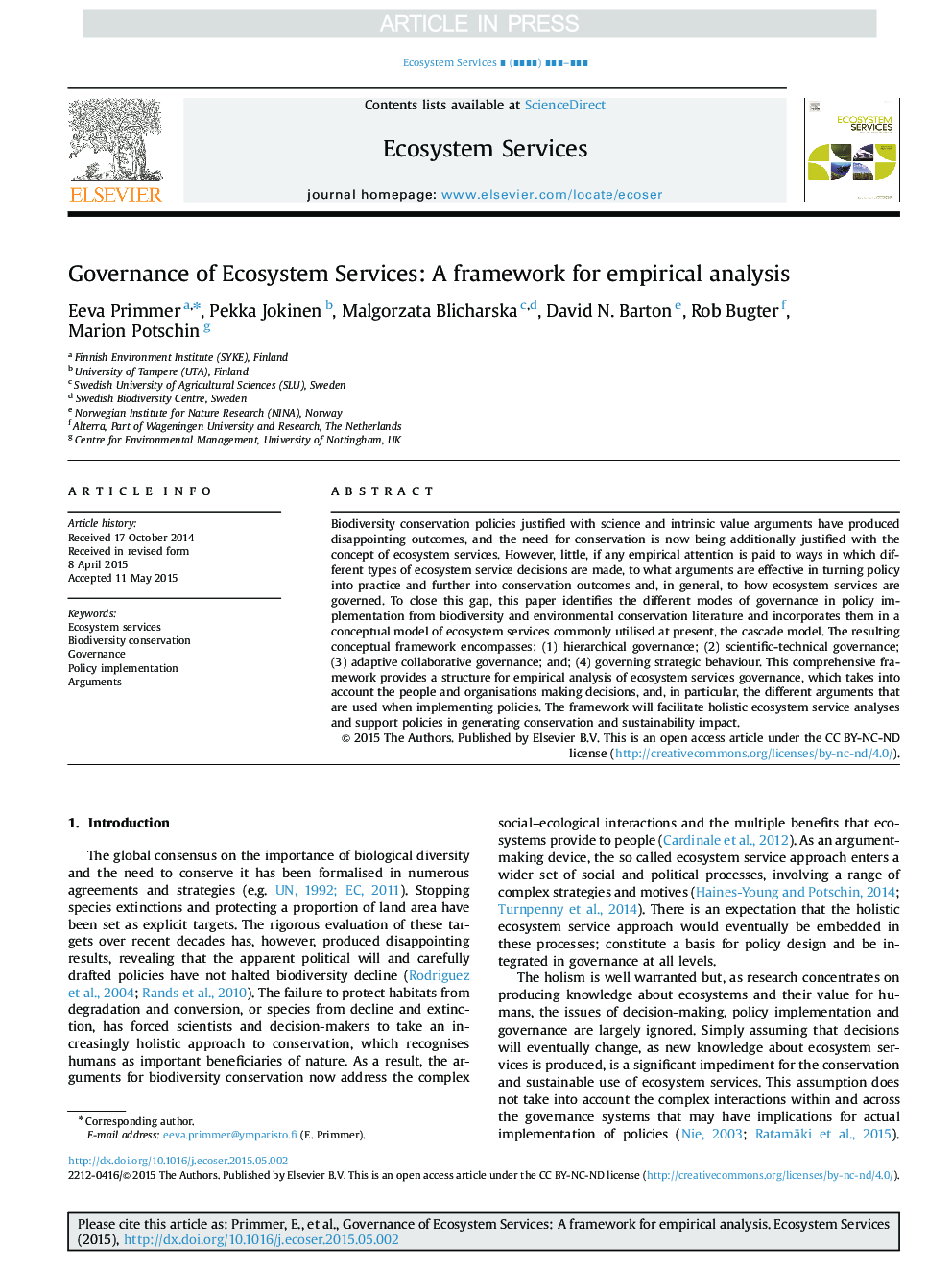| Article ID | Journal | Published Year | Pages | File Type |
|---|---|---|---|---|
| 6556667 | Ecosystem Services | 2015 | 9 Pages |
Abstract
Biodiversity conservation policies justified with science and intrinsic value arguments have produced disappointing outcomes, and the need for conservation is now being additionally justified with the concept of ecosystem services. However, little, if any empirical attention is paid to ways in which different types of ecosystem service decisions are made, to what arguments are effective in turning policy into practice and further into conservation outcomes and, in general, to how ecosystem services are governed. To close this gap, this paper identifies the different modes of governance in policy implementation from biodiversity and environmental conservation literature and incorporates them in a conceptual model of ecosystem services commonly utilised at present, the cascade model. The resulting conceptual framework encompasses: (1) hierarchical governance; (2) scientific-technical governance; (3) adaptive collaborative governance; and; (4) governing strategic behaviour. This comprehensive framework provides a structure for empirical analysis of ecosystem services governance, which takes into account the people and organisations making decisions, and, in particular, the different arguments that are used when implementing policies. The framework will facilitate holistic ecosystem service analyses and support policies in generating conservation and sustainability impact.
Related Topics
Life Sciences
Agricultural and Biological Sciences
Agricultural and Biological Sciences (General)
Authors
Eeva Primmer, Pekka Jokinen, Malgorzata Blicharska, David N. Barton, Rob Bugter, Marion Potschin,
